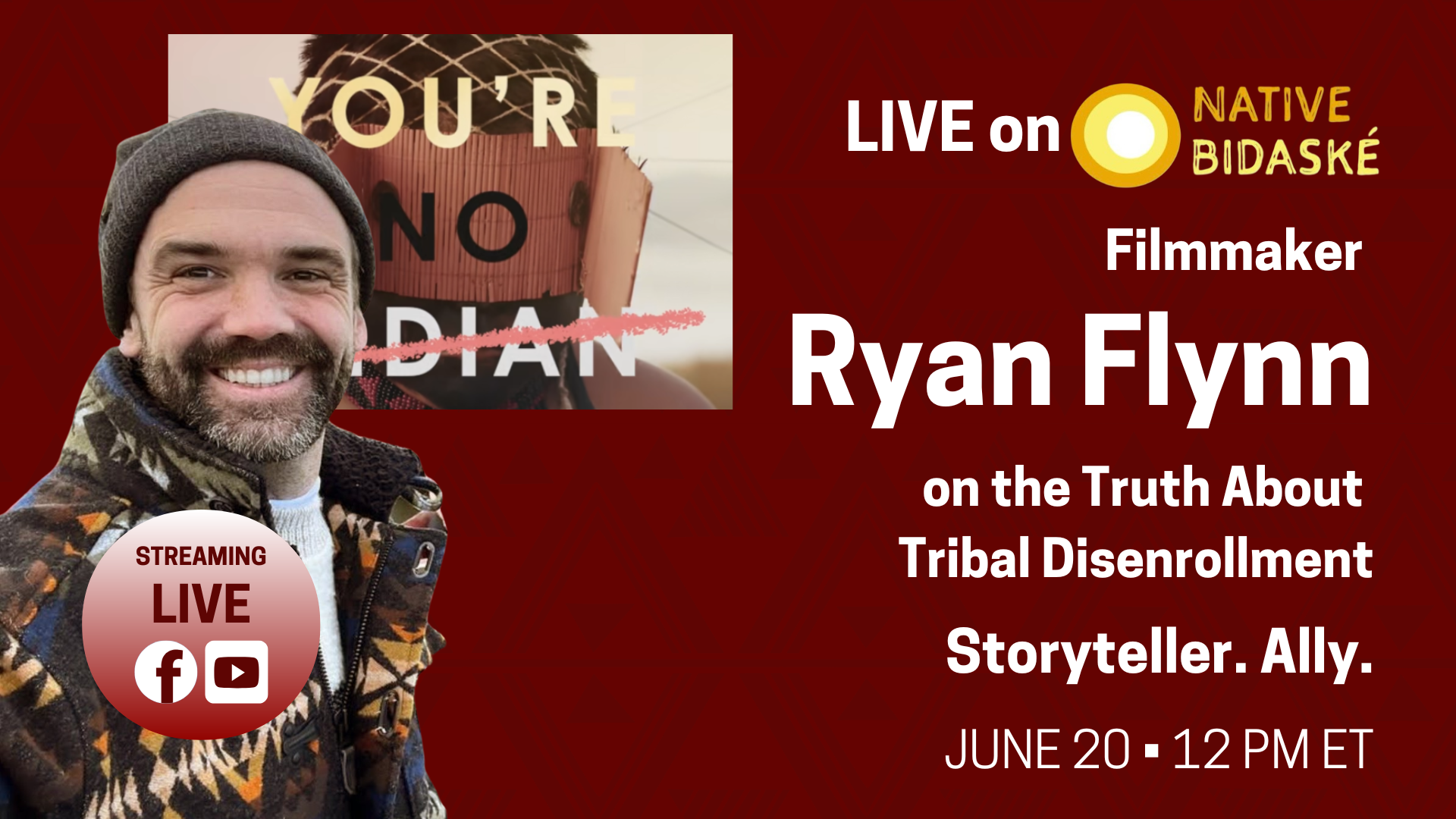
- Details
- By Native StoryLab
Imagine being erased from your own tribe—stripped of your identity, community, and rights without explanation. It's happening right now through tribal disenrollment.
Filmmaker Ryan Flynn spent seven years documenting the lives of Native people who were removed from their tribal rolls, often with devastating consequences. His new documentary, You’re No Indian, exposes the chilling reality: people losing their sense of belonging, their community connections, and their mental health suffering as a result.
The pattern is hard to ignore: Disenrollments spike after casino revenue increases—smaller tribal enrollment rolls mean bigger per-capita payments. Political dissent also triggers removal. Challenge tribal leadership? Get kicked out.
“Disenrollment lives in darkness,” Flynn tells Native Bidaské guest host Kaili Berg. “When people start talking about it, it sounds crazy. If everyone knew this was happening, I believe it would stop.”
"You're No Indian" isn't just a film—it's a movement to break the silence. "This isn't about us telling the story," Flynn says. "It's about amplifying the voices of those who had the courage to speak." Hear their stories on Native Bidaské.
TUNE IN:
Date: Friday, June 20th
Time: 12:00 pm ET / 11:00 am CT / 10:00 am MT / 9:00 am PT
Platforms: Facebook and YouTube
Then visit YourNoIndian.com to join the movement and learn more about this growing crisis.
Help us defend tribal sovereignty.
At Native News Online, our mission is rooted in telling the stories that strengthen sovereignty and uplift Indigenous voices — not just at year’s end, but every single day.
Because of your generosity last year, we were able to keep our reporters on the ground in tribal communities, at national gatherings and in the halls of Congress — covering the issues that matter most to Indian Country: sovereignty, culture, education, health and economic opportunity.
That support sustained us through a tough year in 2025. Now, as we look to the year ahead, we need your help right now to ensure warrior journalism remains strong — reporting that defends tribal sovereignty, amplifies Native truth, and holds power accountable.
 The stakes couldn't be higher. Your support keeps Native voices heard, Native stories told and Native sovereignty defended.
The stakes couldn't be higher. Your support keeps Native voices heard, Native stories told and Native sovereignty defended.
Stand with Warrior Journalism today.
Levi Rickert (Potawatomi), Editor & Publisher
